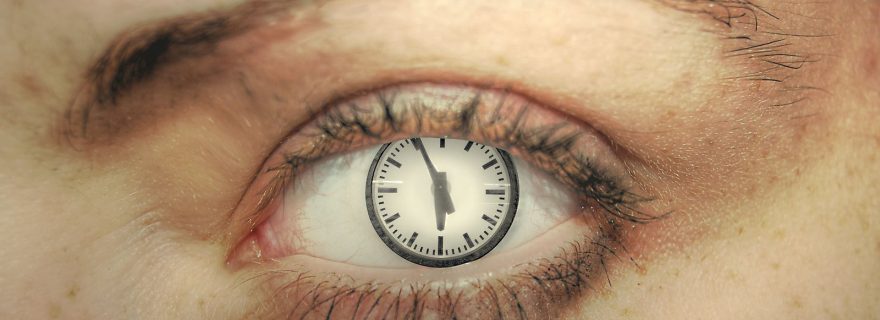Feeling sleepy, feeling risky?
Sleep-deprived? New research shows this can change your behavior in an unexpected way: how many risks you take.
When I came home from the United States last month, I was jetlagged. Not only did I feel tired – I had skipped a night and there was a six-hour time difference – but I could not concentrate and was very forgetful. I put my clothes on backwards, I misplaced my things, I forgot to check in when I took the train to work… Now that I have recovered from my jetlag, I no longer suffer from these symptoms and can laugh about these trivial lapses in attention.
Negative effects of sleep deprivation, such as concentration loss, are well known. However, new research shows that when you do not get enough sleep for days on end, this may also change your behavior in an unexpected way: how many risks you take. And what’s more, you may not even be aware that this is happening!
Acute and chronic sleep deprivation
You have probably skipped a night a few times in your life, such as when “pulling an all-nighter” to make an important deadline, or, like me, when traveling through multiple time zones. When you don’t sleep for an entire night or longer, this is called acute sleep deprivation. Fortunately, for most of us, acute sleep deprivation is something we do not experience on a regular basis. Unfortunately, you may more regularly suffer from chronic sleep deprivation, that is, sleeping less than seven hours a night for days on end. In a new study a group of researchers investigated how acute and chronic sleep deprivation influences our risk-taking behavior.
The sleep lab
How do you measure the effects of sleep deprivation on risk taking? As in any scientific study, the researchers needed a controlled experiment, in which they could accurately compare acute and chronic sleep deprivation. Healthy volunteers were invited to the sleep lab, where the hours of sleep could be accurately monitored. In the sleep lab, the participants experienced a week of chronic sleep restriction (with sleep restricted to only five hours a night, seven nights long), and acute sleep deprivation (staying awake for forty hours at a stretch – can you imagine?!). Thankfully for the participants, they could enjoy two weeks of normal sleep in between (eight hours a night).
Risk taking in the lab
After each sleep measurement, the researchers measured participants’ risk-taking behavior. The participants completed a computer task in which they were asked to choose between a ‘safe’ and a ‘risky’ financial decision. That is, participants had to choose between an option which gave them a 100% chance of winning 25 Swiss francs (the safe option), and an option where they had 40% chance of winning 50 francs, but 60% chance of winning nothing at all (the risky option). The researchers compared the number of risky decisions between normal sleep (eight hours a night), chronic sleep deprivation (five hours of sleep for seven days at a stretch), and acute sleep deprivation (staying awake for forty hours at a stretch).
More risk taking after chronic sleep deprivation
After a week of chronic sleep deprivation, the participants made more risky financial decisions than after a week of normal sleep. Surprisingly, however, they also made more risky decisions after chronic sleep deprivation than after one night of acute sleep deprivation. This shows that, at least with respect to financial risky decisions, chronic sleep deprivation may be more harmful than occasionally skipping a night of sleep.
Risky business
“So, if I don’t manage to get enough sleep, I’ll just be extra careful not to take risks!” you may think. Surprisingly, the study showed otherwise. When the participants were asked whether they noticed anything different about their risk-taking behavior, they did not report any changes. In other words, the increase in risky financial decisions went unnoticed by the participants themselves. Risky business, I would say, especially when you consider that 40% of company managers – who have to make important decisions on a daily basis - sleep less than six hours a night!
All in all, whether you’re a manager of a big company or a PhD student like me recovering from jetlag, better make sure you avoid the risk altogether and get those solid eight hours of sleep. Goodnight!





